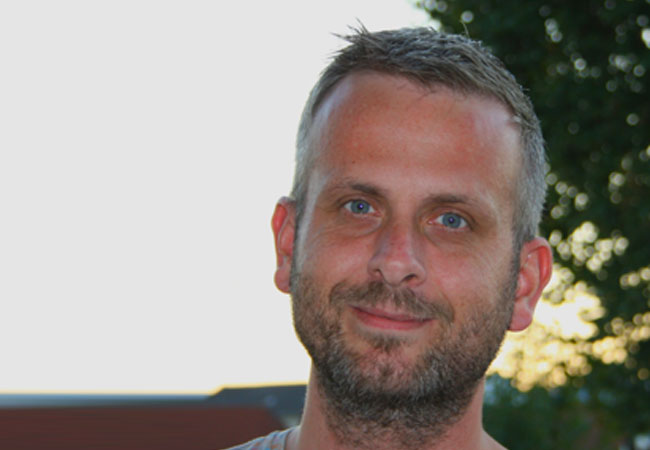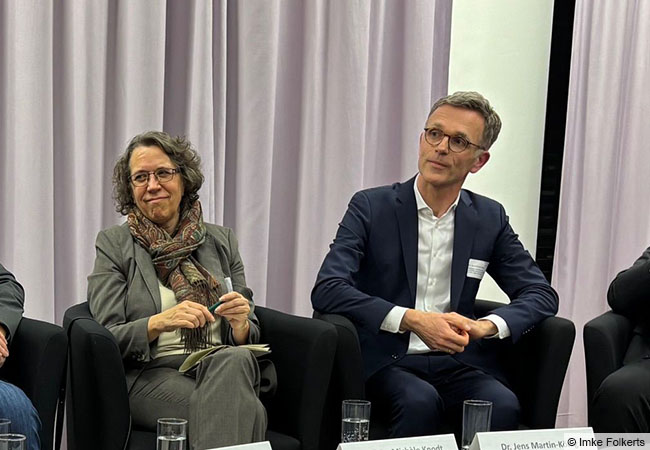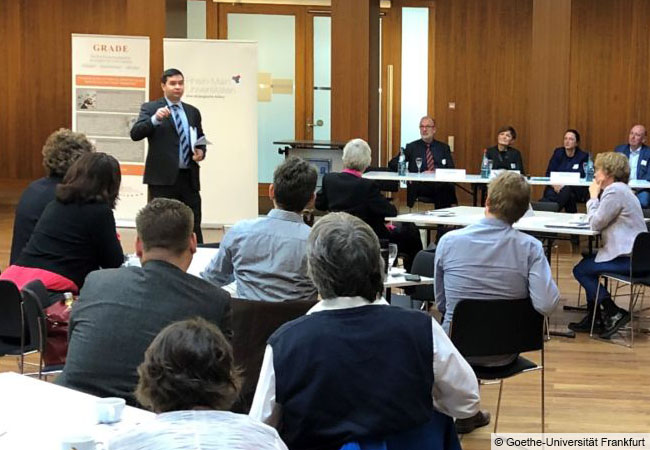
Whether defective cells in the body will live or die is determined by a sophisticated control system. Death receptors play important roles in this system and translate information from outside the cell into critical cellular responses, which are often deregulated in diseases like cancer and inflammation. Cancer researcher Dr. Sjoerd van Wijk from Goethe University will investigate how these receptors function at the molecular level in a new research project which will receive €222,500 in funding over the next three years from the German Research Foundation (DFG).
An effective regulation of programmed cell death is crucial for the correct development of embryos, a working innate immune system, and the prevention of cancer. How cells control the switch between cell survival and death, and which signalling pathways are involved, remain unclear. Proteins that interact with death receptors in these signalling pathways are often marked with various forms of ubiquitin chains, such as linear (M1) and K63-linked polyubiquitin chains. Deubiquitinating enzymes, which specifically break down ubiquitin chains, play a central role in the regulation of these chains, death receptor signalling, and cell fate.
“In our project, we want to investigate the network of M1-deubiquitinating enzymes and interactions with death receptor signalling in mammalian cells in order to understand the fundamental role of the ubiquitin in cell death or survival,” explains Sjoerd van Wijk, group leader at the Institute of Experimental Cancer Research in Pediatrics. The ultimate goal is to understand human diseases, in particular how cancer develops and spreads, and how cells protect themselves against invasive bacteria.
In his research group, van Wijk pursues multidisciplinary approaches using state-of-the-art technology. Through collaborations with Dr. Manuel Kaulich (CRISPR/Cas9 Screening Centre at Goethe University), he has access to highly efficient screening methods to unravel the molecular events that control death receptor function. The analysis of these molecular complexes is also being supported by the ubiquitin mass spectrometry at the Institute for Biochemistry II at Goethe University (Prof. Dr. Ivan Dikic) and at the Institute of Molecular Biology in Mainz (Dr. Petra Beli), as well as by the high-resolution microscopy at the Institute of Physical and Theoretical Chemistry at Goethe University (Prof. Dr. Mike Heilemann).







